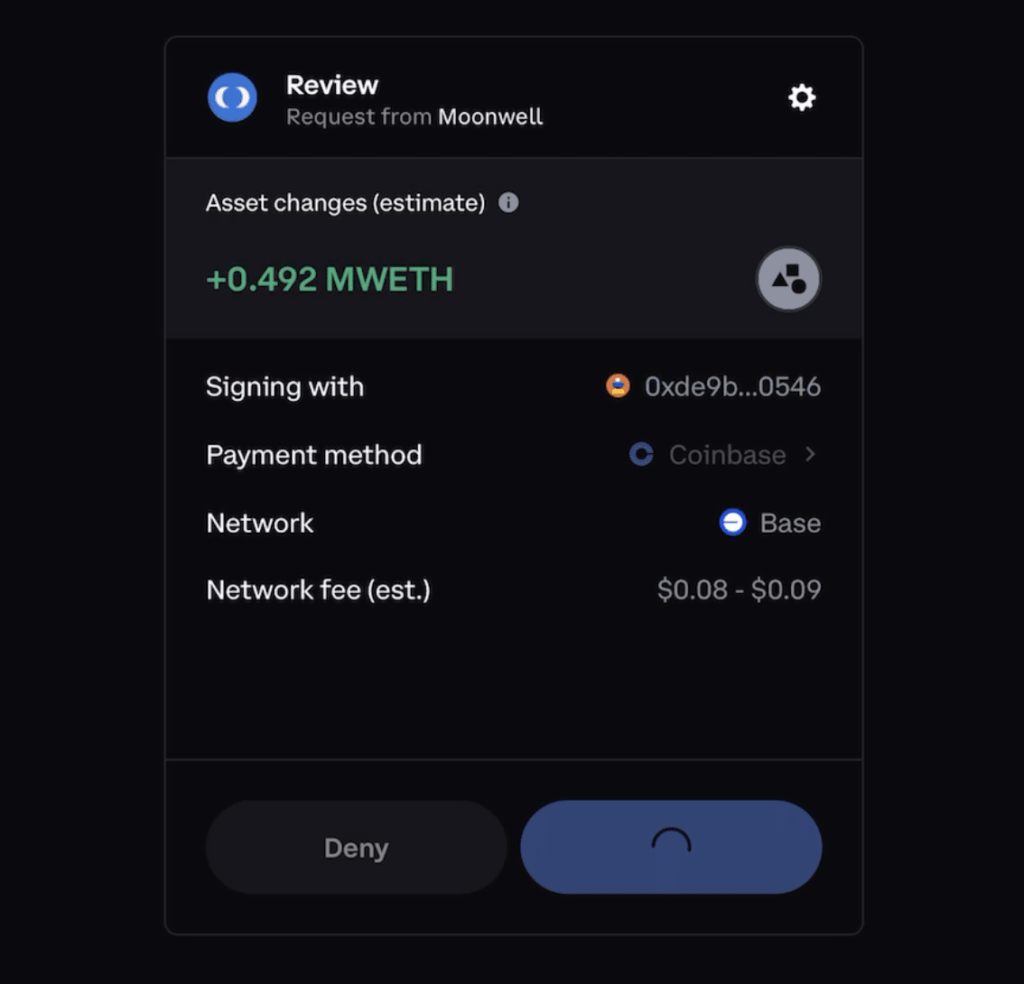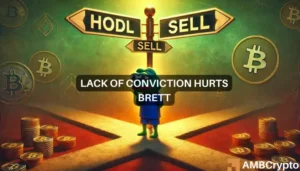
Coinbase smart wallet, which launched this week, is subsidizing gas costs for users’ transactions for some dapps on Base. But a launch partner says one aspect of the setup could enable the company to do this forever.
Coinbase’s smart wallet offers a frictionless experience with sponsored gas fees on Base.
Posted June 7, 2024 at 12:53 pm EST.
Users of Coinbase smart wallet, launched this week, may notice that their gas fees on Base have been sponsored, leading to a more frictionless—and even cheaper—experience.
The reason is that some launch partner dapps are part of Coinbase’s Base Gasless campaign, which offers up to $15,000 in free transactions for users. Having those fees paid creates a more seamless transaction that doesn’t require users to jump through the hoops of moving ETH to Base first, then paying a few cents or another nominal amount for any activity.
“That was always a friction point for early SocialFi apps: ‘Okay, I have to pay a few dollars on Ethereum just to post, or maybe even on an L2, I have to pay a few cents just to like someone’s post or to repost it, right?” said Luke Youngblood, founding contributor at borrowing/lending protocol Moonwell, in the latest episode of the Unchained podcast.
Noting that users of apps like Farcaster were burdened by the hassle, he added, “By sponsoring gas transactions for your users now, it opens up a whole new world of SocialFi and GameFi type of onchain apps that people can use and makes it much more like a web2 experience, where you don’t have to pay fees just to use the app on a daily basis.”
While, due to the low fees, this could cover costs for users for a substantive stretch of time, that raises the question of what would happen once the promotion is over.
Read more: 3 Reasons Why Layer 2 Network Base Has More Than Doubled Its Total Value Locked This Year
In the podcast, Youngblood explained that Coinbase could potentially do this in perpetuity.
“You can imagine how Coinbase is actually earning a lot of money from sequencer fees, from all the transactions happening on Base,” he said, noting that a lot of that activity comes from bots and other people whose transactions may not be sponsored. “If you think about the economic cycle, Coinbase could actually recycle those sequencer fees that are paid in ETH back to onchain apps like Moonwell. And that way they can continuously kind of fund and sponsor transactions on behalf of their users.“
Although the company has not yet committed to doing this, Youngblood, who worked at Coinbase for three years prior to his work on Moonwell, believes the exchange could offer this to dapps that are reputable.
“I could actually see it happening in perpetuity because Base is actually generating more sequencer fees in ETH in revenue for Coinbase,” said Youngblood. “If you think about it, they could generate nine figures worth of sequencer fees in a calendar year. It’s actually more strategic for them to recycle those and help grow the onchain app ecosystem and economy for Base, rather than to just keep that as like profit on their balance sheet.”
However, he emphasized, he’s not in a position to make promises, and for apps like Moonwell, he said another option could be that they pay those fees for users out of funds they’ve raised from venture capital.
Watch more on Base: Why Base’s Creator Thinks Social Apps Will Be a ‘Huge Part’ of the Layer 2 Blockchain’s Success
Powered by WPeMatico



